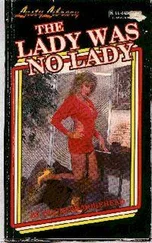Everybody calls Abu Hatem’s son, Nabil, ‘Abul-Nun’. Nabil comes over, carrying hot coals in a metal colander, and puts some on each arghileh.
Hassan Dahman works in a garment factory in one of the settlements close to Khan Yunis. Now he picks up the thread of the conversation and begins to embroider on the subject of bilateral relations. ‘Back during the First Intifada, cousin, the Jews used to come to visit us. They used to come to our weddings and bring their children with them. They’d come to congratulate the bride and groom. They’d come to the wedding and dance with us. None of us had any problems with anything.’
‘Yeah, it’s the Second Intifada that ruined everything. All the dying, the shooting and suicide bombs. That’s what blew up everything we had, Hassan.’
‘That’s right. If only the Intifadas hadn’t happened. If only we’d stuck to the old slogan of a secular, democratic state — the two peoples would have been assimilated into one another by now. You know, a lot of Palestinians married Jewish girls and got citizenship.’
‘You’re dreaming, Abu Hatem! Your mind is all mixed up by Uncle Sha’ul and all the business you do.’
‘You’re mistaken, Abu Jalal. The First Intifada revived the Israeli left and made it stronger.’
‘So the First Intifada fixed all our problems? I beg to differ. The Intifada is what fucked us up good. The First Intifada brought us Oslo, right? And Oslo brought us the PA, right? Go look outside and see all the thuggery and corruption the PA brought to the country. Then it fucked itself up and left us with nothing but occupation.’
‘The First Intifada was a popular insurrection. Everyone got involved. Even dogs took part in the struggle. Who else remembers what Abu Khaled’s dog did during the First Intifada?’
When no one answers, he goes on. ‘Apparently I’m the only one who knows it. I heard the story from folks in Breij Camp.’
‘Tell us the story then, Jumaa,’ someone finally calls out. Others chime in, inviting him to go on.
‘One day, the chief Israeli commander is touring Breij Camp in his jeep. The jeep stops and he gets out of the vehicle. Back in the day, Abu Khaled El-Jirjani had a dog called Bobby. Bobby sees the officer and begins to bark at him. When the kids in the neighbourhood notice, they start cheering Bobby on, clapping and whistling: “Bite him, Bobby! Eat him up, chew his bones!” The dog gets riled up even more and begins to bark louder and louder. The next thing you know, Bobby’s flying through the air. He’s like a panther pouncing on the officer, locking his jaws on the man. At first the Israeli is completely stunned, then he manages to grab his gun and he shoots Bobby. Then he jumps into his jeep and takes off as fast as he can, while the poor dog lies dying in a pool of his own blood. Those kids went and picked up Bobby’s body. I swear to you, those kids picked up that dog and put him on their shoulders like they were carrying the body of a soldier who’d been killed on the battlefield. Of course, the Jews couldn’t do anything to stop them from doing it. Those kids went around saying that Bobby was a true patriotic hero. They were crying, with real tears in their eyes, and singing.
By our souls, by our blood,
We will ransom you, O Bobby!
To cut a long story short, people, they dug a grave for the dog and buried him. He was the first dog martyr of the cause.’
‘I’ve heard that story before, Jumaa. I don’t want to ruin it for you. But the truth of it is that he wasn’t any braver or more patriotic than other dogs. He just knew that the Jew wasn’t from the camp and didn’t belong. That’s all. Then he attacked. I remember the dog. I was pretty broken up about it when he died.’
‘God have mercy on that dog’s soul. What do you think, Abu Fadi, do you think Israel’s ever going to pull out of Gaza?’
‘Yes, Abu Faruq. It wants to leave. Sharon’s as sick and tired of Gaza as everyone else who came before. He wants to get rid of Gaza — not because he gives a damn about the people who live here, but so that he can hold all the keys himself and slam the door shut whenever he wants to.’
‘Damned if they occupy us and damned if they pull out!’
Suddenly, I start thinking about Salim Abu Shanab, a journalist I met in Tunis years ago. And I remember a story he told me when I visited him three days ago at the press office he works at. We had been talking about the current situation, analysing it from so many angles that it began to dissolve on our tongues. I asked him whether he agreed that a kind of tribalism — or clannishness — had returned to Gaza after so many years. I asked whether he agreed that this mindset had crept into everyone’s heads now, including intellectuals’ who should know better. He leaned back in his chair, took a long drag of his cigarette, then answered, ‘Listen, my friend. It’s easy to explain. If no one’s got your back, you’re dead. Look at me, I write all the time in a lot of papers. I appear on television. I have personally gone after the PA. I have been critical of Hamas as well — but no one can touch me. And that’s because before anyone is going to come after you, they’re going to size you up. Who are you? Who are you related to? Who’s got your back? How strong is your family? Are you with the PA? And so on. Listen, let me tell you a story that will explain how it works. There was a Hamas preacher called Abul-Sibhat, because of all the prayer beads he played with. The guy attacked me all the time. Every Friday, this guy had nothing better to do than abuse me. During his sermon, he’d go on and on about this heretical apostate journalist Abu Muhannad, meaning yours truly. One Friday, my cousin Bassam — he’s a really good guy, you’d like him — was praying in Abul-Subuhat’s mosque. Bassam listened to the man attack me like he did every week. The microphone was turned up so loud you could hear it all the way to the outskirts of Rafah Camp. Bassam waited after prayers and then went up to the guy. He says: “God bless you, sheikh.” The guy must have thought Bassam had come to thank him for the great sermon, so he replies: “God bless you too. Welcome, dear brother.” So my cousin says, “Do you know who that heretic Salim Abu Shanab is?” Abul-Subuhat strokes his beard from top to bottom and gently answers: “Let’s not talk about that apostate. May the curses of God be upon him!” “Listen up, you old coot,” my cousin shouts. Then Bassam starts yelling at the sheikh while sparks shoot out of his eyes, “That man — the one you say is an apostate — he’s my cousin. He’s part of my family. We’re the Abu Shanabs — don’t forget the name. If you ever utter anything negative about him, I’m going to rip your beard out. Even if you surround yourself with twenty other old sheikhs and a hundred militiamen, I’ll come in here and break your knees.”
‘“Salim Abu Shanab’s your cousin?” the sheikh asks, squirming like a cockroach in a drain. Of course, he never expected that someone would speak to him like that. Our pious brother had built his entire reputation on abusing me. He put on a caliph’s cloak and built a small kingdom for himself in a mosque while gathering followers around him. And every Friday, they’d entertain themselves cursing the Satan of the Press as they used to call me. The devil of the secular apostates. And now along comes someone who doesn’t only hold him accountable for what he says, but chastises him for it too. Our sheikh friend starts to tremble. As he tries to justify himself, his beard sweeps back and forth on the ground like a soft broom, “Did I say something wrong?” My cousin Bassam reminds him of all the punishments he is going to suffer if he doesn’t quit. The old man is shaking and stuttering as he utters the most earnest of oaths: “I swear to God, I swear to God, if I’d known Salim was your cousin, I would have kept my thoughts about him to myself.” “I don’t want you to speak about him. I don’t want you to have any thoughts about him either. Do you hear me, old man? Or do you want me to bury you upside down in the sand?”
Читать дальше












